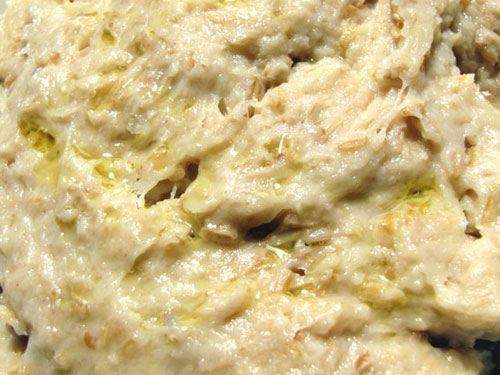 |
| Moroccan Mint Tea with Arabic Sweets |
I don't drink coffee, so tea is always my choice instead. My favourite tea is Indian or Pakistani style milky chai that is very rich with sweet evaporated milk. I know many people find this type of tea way too sweet and I agree, but am sort of used to it now.
So far I'm concerned they typically use evaporated milk instead of fresh possibly because once upon a time when fridges were a luxury, evaporated milk was a natural choice in those hot-climate countries because it has longer life than fresh milk. Keeping fresh milk fresh must've been a bit of a hassle and challenge especially in the countryside and some remote areas.
In fact it's not just in India or Pakistan, local coffees or teas of Thailand, Vietnam, Malaysia, etc in the tropic South Asia are typically made with sweetened evaporated milk.
Many people may not be used to the distinct flavour of evaporated milk, I love my tea milky so it doesn't bother me whether the milk is evaporated or fresh.
Every time I visit my Pakistani friends in Dubai, they always brew me some rich milky chai. To my surprise they (2 sisters) do not like cinnamon in their tea, and usually use fresh milk. They add spoonfuls of Indian/Pakistani tea 'grains' to water and milk, boil and simmer it for 10 minutes. Cardamon and/or cloves may be added.
Even though the tea is brewed for 10 long minutes, it has no bitterness and absolutely heavenly tasty!
 |
| At this snack shop, tea is served in a hand-made clay cup, which is disposable! Initially Dh1.50/cup but now gone up to Dh2... |
If you step into an industrial are or a neighbourhood of South Asian expat labour, you'll find many small tea shops or stalls that sell a number of different types of tea such as spiced or ginger tea.
Although a significant portion of the UAE's population is made up with South Asians, not all of such tea shops sell excellent brewed chai. You may well be served with a Lipton tea bag! Or even if they do give you brewed tea, it could be too strong or horribly bitter, possibly because of over-brewing. You've got to be careful.
If a queue of cars forming up to for a takeaway cuppa right in front of a tea stall, you may take it for a reliable sign of pretty good cuppas.
The tea stall an Emirati friend of mine took me in his shiny Porsche Cayenne the other day was one such shop serving excellent tea. The shop was shabby but extremely busy, and amazingly here was I to come across the very rare pink chai that is a speciality of the highlands of Pakistan or Afghanistan as far as I know.
I knew one Pakistani eatery in Manhattan that served this rare tea. It seems a bit of hassle to make this tea, so despite the fact the UAE is filled with thousands of South Asians, this chai is extremely rare. Words are not enough to thank my dear friend, Ali who took me here!!
 |
| Pink Tea?! Such a Rarity! |
Morocco in North Africa is known for its refreshing mint tea. As I sip the tea poured in a tiny glass the aroma of fresh cool mint gives me a relaxing moment.
In Egypt you have a choice of loose tea or a tea bag. I find loose tea much better in quality, however I see locals equally enjoy tea bags. I hear loose tea is stronger, so depending on the time of day or personal preference, some opt for a tea bag.
Bedouin tea is green tea brewed over heat and sugar is added. In China and other Asian countries, green tea is always served plain.
A Moroccan friend of mine is a top chef who has worked for 5-star hotels in various cities across the world. She's currently in charge of a fine Moroccan restaurant in an Abu Dhabi hotel. At weekends they hold a belly dance show which I found quite entertaining.













